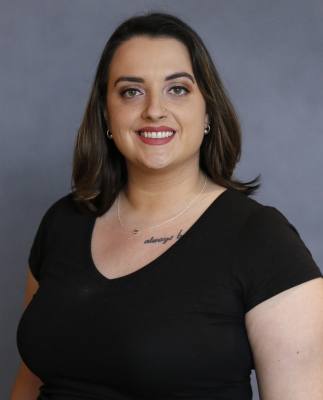Friendswood ISD is working toward more robust, individualized programming for its students on their journeys to college, career and military readiness, Executive Director of Teaching and Learning Kim Cole said during a Dec. 14 board of trustees meeting.
At the meeting, Cole presented data related to FISD students’ performance on college admissions tests as well as data on the students taking credits at local junior colleges or receiving professional certifications in skilled trades. Data also showed the percentage of FISD students self-reporting military enrollment doubled, from 1.6% to 3.2%, between 2018 and 2019.
While FISD and districts across the state are evaluated yearly by the Texas Education Agency based on academic performance, Cole said the district focuses more resources on executing its mission to “redefine the measure of student success based on our beliefs and call to action” as stated in the strategic plan.
“They have to have a voice in their own journey,” Cole said of students choosing their secondary and postsecondary paths. “We’re going to focus our work solely based on what our beliefs are, not on the accountability points we get [from the state] from achieving that.”
In an effort to provide individualized opportunities, FISD will join several Houston-area ISDs in shedding the Pre-AP designation on its honors courses for secondary students, district leaders said Dec. 14. The courses will fall under the Mustang Advanced Program label starting next academic year. The College Board requires courses with an AP or Pre-AP designation to adhere exactly to a specific curriculum, which leaders at FISD and other districts—including Clear Creek ISD—said does not align with their mission.
FISD sophomores fill out an interest survey to help determine their best academic path, and aptitude tests are available for those sophomores who are unsure of what their interests are. The aptitude tests are given on an as-requested basis, and Cole said the district hopes to expand their availability to reach more students who might need additional guidance.
During the meeting, trustees and district leaders made several observations related to recent educational trends, including a movement away from SAT and ACT scores being emphasized on college applications. Cole said this movement was happening even before the pandemic, and higher education institutions may continue to place less weight on the tests moving forward, so FISD will continue carefully watching those trends.
Another positive change from 2018 to 2019 was the percentage of special education students who were considered college, career and military ready, or CCMR: 78% of the district’s special education students met CCMR requirements in 2019 compared to 36% the year prior.
Part of the increase, Cole said, was due to the passage of House Bill 165. The bill, which took effect in September 2019 and allowed students learning under a modified curriculum to receive endorsements for excellence in certain disciplines as other students do. The special education department, led by executive director Dahria Driskell, has also done “really great, intentional work in this area” to spur the change, Cole added.
To fully accomplish its vision of reimagining student success, the district will move toward creating focus areas within the curriculum for CCMR purposes. The career cluster, for example, would include opportunities for dual-credit enrollment and professional certifications, where the military cluster includes opportunities for connecting with recruiters and support for those taking the Armed Services Vocational Aptitude Battery test.
Ultimately, FISD aims to revamp its curriculum to be pathway-based and goal-driven, Cole said. In an ideal world, staff would be able to identify every secondary student based on their goals; this culture is present among college-bound students, but could be built upon with those focused in career or military pathways, she said.
The efforts to reimagine curriculum for secondary students begin in part at the elementary level. Lauren Ambeau, executive director of elementary teaching and learning, said Dec. 14 it is a “moral obligation” for elementary educators to ensure fifth-graders finish the year knowing their strengths and problem areas since this will prepare them to explore the right academic pathways in secondary school.
Trustee David Montz asked Cole on Dec. 14 how many additional counselors might be needed to achieve these plans. Cole said a minimum of two would make a huge difference.
“I think we’re a little underserved ... it takes manpower to do it,” she said. “Certainly we are low in the area of counseling staff compared to other districts, for sure.”





